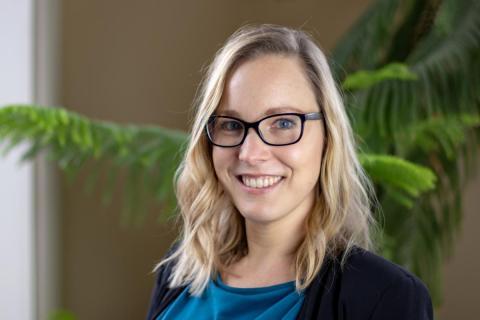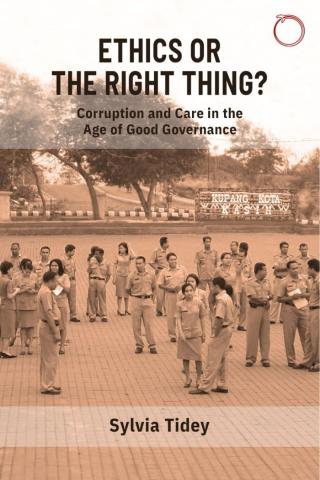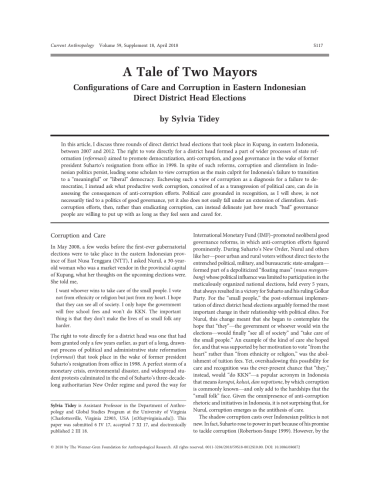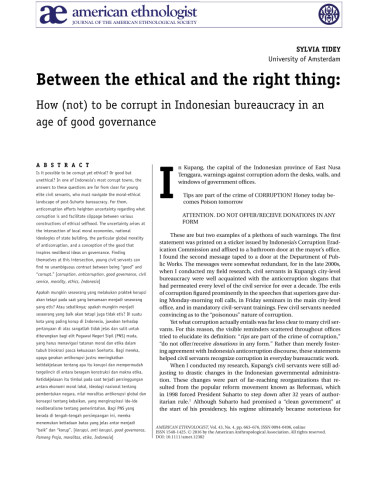Sylvia Tidey
Ph.D. University of Amsterdam 2012
Specialties
Corruption, bureaucracy, the state, kinship, sexuality, (trans)gender, HIV/AIDS, phenomenological anthropology, Southeast Asia (Indonesia)
I am a cultural anthropologist with an interest in the ethics of care in family intimacies amid particular socio–political notions of the good life. In my various research projects in Indonesia, I address how family expectations and obligations of care blur lines between corruption and good governance in local bureaucracies, and complicate health outcomes for transgender women in the context of HIV and LGBTQI activism. The questions that permeate my research are how globally circulating ideologies of improvement around health or government interact with on–the–ground governmental and health–related practices; how the normative dimensions of such ideologies contrasts with the ethical complexities of everyday life; and what role the maintenance of family ties plays in the construction of ethical personhood.
In my first research project I examined the continuation of civil service corruption in Indonesia in the aftermath of stringent anti–corruption measures meant to promote “good governance.” If anti–corruption did not succeed in decreasing corruption, so I asked, what did it do? In my first book, Ethics or the Right Thing: Corruption and Care in the Age of Good Governance (HAU Books 2022), I set out to answer this question. Based on intensive ethnographic fieldwork within government offices in the eastern Indonesian city of Kupang—which anti-corruption organization Transparency International awarded the unenviable title of being Indonesia’s most corrupt city—this book shows that good governance-inspired anti-corruption methods have not only enabled a continuation of existing forms of corruption but also facilitated the emergence of novel forms of corruption. Uniquely, it does so from the perspective of civil servants, who are so often considered to be the main culprits of corruption. This book offers a detailed, in-depth, and intimate intersubjective study of civil servants’ experiential-ethical navigation of an altered, uncertain, and opaque bureaucratic landscape. For many civil servants, anti-corruption measures are not experienced as a guarantor of a good life but as a threat to it—for, as I argue, it interrupts the caring responsibilities that make life livable in a poor, economically precarious province. Therefore, rather than being concerned with how not to be corrupt, the central challenge for civil servants is how to distinguish corruption from care. The central question this invites is not how to entice people to adhere to new rules and regulations in order to ensure a narrowly defined prescriptive and universal good, but rather how to ensure that anti-corruption efforts do not impede possibilities for forging worthwhile lives. At a more fundamental level, this book addresses the tension between modes of governance and the possibilities they afford for human flourishing. It argues for the importance of envisioning alternative possibilities for a governmental good in which care features centrally.
I continue my interest in ethics, care, and questions of the good life in post-authoritarian Indonesia in my current, ongoing research project. Once again, I attend to the juxtaposition between influential caring impulses and situated conceptions of what comes to count as a good life. Specifically, I turn to the puzzling question of why so many young and otherwise healthy HIV+ gay and transgender Indonesians refuse to start or continue taking free and accessible life-saving antiretroviral medications, thus effectively inviting a premature death. The research I conducted so far with HIV+ gay and transgender Indonesians, suggests that existing approaches to HIV-related care, premised on a biomedical emphasis on individual patient adherence to medication and its concomitant promise of having a long life, neglect the possibility that having a life worth living might require more than simply staying alive. Many of my gay and transgender interlocutors consider a worthwhile life to be one that is deeply embedded within networks of relations with family and other intimate others, and they are acutely aware of the damaging effect the double stigma of non-heteronormativity and being HIV+ can have on them. With its emphasis on openness and sharing one’s status, existing HIV-care is seen as threatening to dissolve the very threads of fragile familial belonging and care. When the long life promised by antiretrovirals is felt to be a lonely one, foregoing them becomes more understandable.
Selected Publications
Books
2022 Ethics or the Right Thing? Corruption, Care, and Family in an Age of Good Governance. HAU Books/University of Chicago Press.
Articles
2019 "Keeping the Future at Bay: Waria, Anticipation, and Existential Endings in Bali, Indonesia." Cambridge Journal of Anthropology. 37(1): 47–60.
2019 "Requiem for a Waria: Piety and the Political Potentiality of Ironic Experiences." Social Analysis 63(1): 83–102.
2018 “A tale of two mayors: configurations of care and corruption in eastern Indonesian direct district head elections.” Current Anthropology 59(s18): 119–127.
2016 “Between the ethical and the right thing: how (not) to be corrupt in Indonesian bureaucracy in an age of good governance. American Ethnologist 43(4): 663-676.
2013 “Corruption and adherence to rules in the construction sector: reading the ‘bidding books.’” American Anthropologist 115(2): 188-202.
2012 “A divided provincial town: the development from ethnicity based to class-based segmentation in Kupang, West Timor.” City and Society 24(3).
Podcasts
2021 – now Under the Table: An Anthropology of Corruption Podcast. With co-host Aaron Ansell. https://underthetablepodcast.buzzsprout.com/



